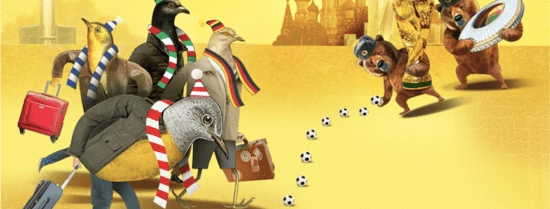Proponents of major sports events typically argue that these investments pay for themselves, as events generate additional economic activity and thus create new tax revenue to the host. While this economic impact may seem easy to measure, this is not straightforward in practice.
Cash-strapped situation
Consider for example a Russian football fan who cuts back on going to the movies to save money for a ticket to the games. Her spending for the tournament is no gain to the Russian economy, as the same amount would have been spent at the movie theatre, had there not been a World Cup. Given the cash-strapped situation of Russian households, most Russian consumers probably have not increased their total spending on leisure very much, and hence this has not generated additional economic activity.
Economists have therefore focused on income generated from outside the host country. Foreign visitors are likely to truly bring additional spending to the host’s economy, in particular when they would not have visited in the absence of the World Cup. If Russia is to recoup its investments, it needs to attract an abundance of rich foreign tourists with favourable spending habits. Is Russia likely to succeed in this endeavour?
The tourism impact of the FIFA World Cup
To shed light on this issue, Stefan Szymanski, Victor Matheson and I investigated the tourism impact of the FIFA World Cup in South Africa. South Africa is an interesting case to consider, because, much like Russia, it was not an established destination prior to the World Cup. The South African Cup faced similar criticism about its use of tax payer money, as it also took place in a middle-income country facing fundamental socio-economic challenges. By comparison to Russia however, the South African Cup was a bargain, with total tax payer investments of $3.9 billion, of which ‘only’ $1.3 billion went to stadiums.
For our analysis we were able to investigate the historic records of monthly arrivals into South Africa split by country of origin. Obtaining these figures was crucial to answering our question, because we had to estimate how many people would have visited South Africa in the absence of a World Cup. By looking at, for example, the amount of Dutch tourists traveling to South Africa before the World Cup period, we could infer which factors, such as economic growth in the Netherlands or the exchange rate between the euro and the South African Rand, affect tourism in ‘normal’ times. We could then use this model to predict how many Dutch tourists would have come to South Africa had there not been a World Cup in which ‘Oranje’ made it all the way to the final.
'Even in our most conservative estimates, South Africa spent about $5,000 per extra tourist, an amount it is very unlikely to recoup through additional tax receipts'
Gloomy prospects
According to this analysis, around 220,000 additional tourists came to South Africa during the World Cup, an increase of more than 100% over the ‘normal’ levels for June and July 2010. The participating countries are responsible for around 80% of this increase. This surge further caused a modest long-run increase in tourism of about 5%. This still implies that, even in our most conservative estimates, South Africa spent about $5,000 per extra tourist, an amount it is very unlikely to recoup through additional tax receipts.
The prospects for Russia are even more gloomy. First, a number of major football tourism countries, in particular the USA and the Netherlands, failed to qualify for the tournament. Second, in contrast to South Africa, the event took place in the peak of the Russian tourist season, so probably more ‘normal’ tourism was displaced. Finally, the Russian World Cup was much more expensive. This makes it very unlikely that Russian taxpayers are about to see a positive return on their investment


